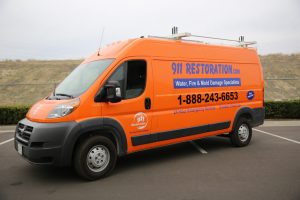Evacuation Planning: Knowing When and How to Leave
At 911 Restoration of Northern Virginia, we recognize the significance of preparedness in the face of potential disasters. When it comes to hurricanes and other emergencies, having a well-thought-out evacuation plan can make all the difference in keeping your loved ones safe. In this article, we’ll guide you through the essential steps of creating an effective evacuation plan, helping you understand when and how to leave your home in the event of an emergency. 
Identifying Evacuation Zones and Routes in Your Area
- Know Your Risk: Familiarize yourself with the types of disasters that could affect your area. In Northern Virginia, hurricanes, flooding, and severe storms are potential threats.
- Evacuation Zones: Research your community’s evacuation zones. These are areas prone to flooding or other dangers during storms. Authorities will advise residents in these zones to evacuate if necessary.
- Evacuation Routes: Identify primary and secondary evacuation routes leading out of your neighborhood. Ensure that you’re aware of multiple ways to leave, as certain roads may become congested or blocked during emergencies.
Factors to Consider When Deciding Whether to Evacuate
- Weather Warnings: Stay informed through weather alerts and official advisories. If authorities issue a mandatory evacuation order, take it seriously and leave promptly.
- Personal Circumstances: Consider the specific needs of your family members. Elderly individuals, young children, and those with medical conditions may require special considerations during an evacuation.
- Home Vulnerability: Assess the structural integrity of your home. If your residence is at risk of flooding or severe damage, leaving early might be the safest option.
- Emergency Supplies: Ensure you have a well-stocked emergency kit ready to go. Having essential supplies on hand can make evacuating more manageable and less stressful.
Creating a Checklist to Ensure You Don’t Forget Anything Important
- Important Documents: Gather and secure important documents like identification, insurance policies, medical records, and contact information.
- Medications and Medical Supplies: Pack any necessary medications, medical supplies, and equipment.
- Basic Necessities: Include non-perishable food, water, clothing, toiletries, and blankets.
- Communication Devices: Bring cell phones, chargers, and portable chargers to stay connected.
- Pet Care: If you have pets, ensure you have their essentials, including food, water, carriers, and leashes.
Communication in Stressful Emergencies
At 911 Restoration of Northern Virginia, we understand that emergencies can be chaotic and overwhelming. By having a well-structured evacuation plan in place, you’re taking proactive steps to prioritize the safety of your family. Remember that clear communication is essential during high-stress situations. Reach out to local authorities and follow official instructions.
If you’re faced with damage to your home after an emergency, know that we’re here to help you restore and rebuild. Our commitment to your safety extends beyond restoration – it encompasses guidance, support, and reliable communication, ensuring you’re never alone in times of crisis. Call our IICRC certified techs today.


